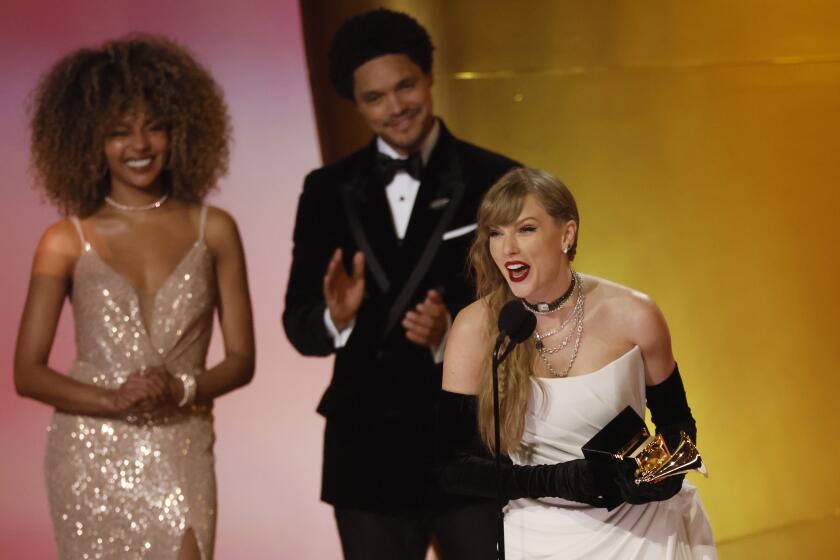YOU BETTER GO TO THE DOCTOR : He Knows That ‘Music Is a Healing Force’
- Share via
Mac “Dr. John” Rebennack has been successfully “doctorating the souls” of audiences with his piano for decades, and it’s a bit disillusioning to find that when the good doctor came home sick last week following a Japanese tour, he went to see a more conventional MD.
One might have expected him to cure himself with a prescription of mojo root and graveyard dirt, given the “hoodoo” image Rebennack concocted for his Dr. John alter ego in the late ‘60s. Rebennack made hypnotic music that sounded like it was floating out of a murky swamp, and he himself was made up to look like a voodoo priest who was at least part werewolf.
Rebennack has since emerged as perhaps the greatest surviving statesman of certain New Orleans musical traditions. The piano wizardry of the Crescent City’s Professor Longhair, Huey (Piano) Smith and James Booker can be heard in his playing, along with his own formidable keyboard personality.
Nearly 50 now, Rebennack has been playing professionally since he was 13. He had Top 10 hits in 1973 with “Such a Night” and “Right Place, Wrong Time” but had no major label contract for most of the ‘80s. A well-received album of standards, “In a Sentimental Mood,” was released on Warner Bros. last year.
On “Bluesiana Triangle,” issued this year on Windham Hill, Rebennack collaborated with sax man David “Fathead” Newman and the late jazz drummer Art Blakey.
Though he’s had his share of stellar moments--including a performance in Martin Scorsese’s “The Last Waltz” and a yearly closing spot at the New Orleans Jazz and Heritage Festival before 80,000 or so persons--those aren’t the points in his career he’s proudest of.
Speaking by phone from New York on Saturday, Rebennack said, “I feel best about those times when music locks into a groove and when I’m able to help do that. And often those are things that never made it out on a record. . . .That’s what I’m proud of, doing what I know how to do and doing it right for that minute.
“It’s one of the spiritual things. Music is a healing force, it makes people come out of a lower frame of brain into a higher one. And that’s it for me.”
More to Read
The biggest entertainment stories
Get our big stories about Hollywood, film, television, music, arts, culture and more right in your inbox as soon as they publish.
You may occasionally receive promotional content from the Los Angeles Times.










